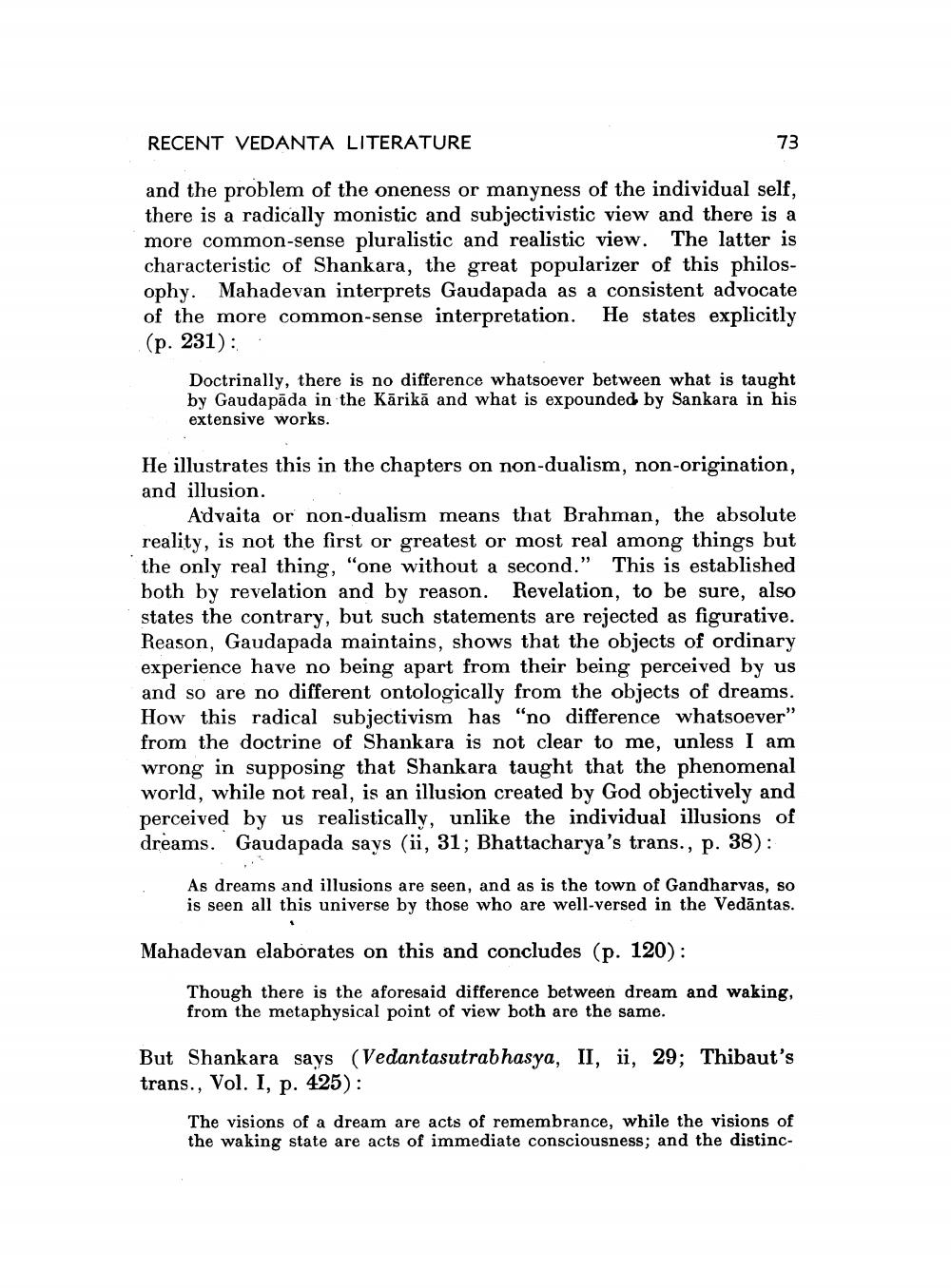Book Title: Recent Vedanta Literature Author(s): George Burch Publisher: George Burch View full book textPage 6
________________ RECENT VEDANTA LITERATURE 73 and the problem of the oneness or manyness of the individual self, there is a radically monistic and subjectivistic view and there is a more common sense pluralistic and realistic view. The latter is characteristic of Shankara, the great popularizer of this philosophy. Mahadevan interprets Gaudapada as a consistent advocate of the more common sense interpretation. He states explicitly (p. 231): Doctrinally, there is no difference whatsoever between what is taught by Gaudapāda in the Kārikā and what is expounded by Sankara in his extensive works. He illustrates this in the chapters on non-dualism, non-origination, and illusion. Advaita or non-dualism means that Brahman, the absolute reality, is not the first or greatest or most real among things but the only real thing, "one without a second.” This is established both by revelation and by reason. Revelation, to be sure, also states the contrary, but such statements are rejected as figurative. Reason, Gaudapada maintains, shows that the objects of ordinary experience have no being apart from their being perceived by us and so are no different ontologically from the objects of dreams. How this radical subjectivism has "no difference whatsoever" from the doctrine of Shankara is not clear to me, unless I am wrong in supposing that Shankara taught that the phenomenal world, while not real, is an illusion created by God objectively and perceived by us realistically, unlike the individual illusions of dreams. Gaudapada says (ii, 31; Bhattacharya's trans., p. 38): As dreams and illusions are seen, and as is the town of Gandharvas, so is seen all this universe by those who are well-versed in the Vedāntas. Mahadevan elaborates on this and concludes (p. 120): Though there is the aforesaid difference between dream and waking, from the metaphysical point of view both are the same. But Shankara says (Vedantasutrabhasya, II, ii, 29; Thibaut's trans., Vol. I, p. 425): The visions of a dream are acts of remembrance, while the visions of the waking state are acts of immediate consciousness; and the distincPage Navigation
1 ... 4 5 6 7 8 9 10 11 12 13 14 15 16 17 18 19 20 21 22 23 24 25 26 27 28 29
